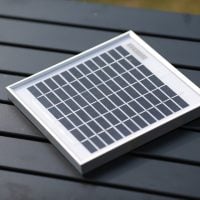In recent years, the significance of solar power for small and medium-sized enterprises (SMEs) has become increasingly evident. As the world grapples with climate change and the need for sustainable energy solutions, SMEs are uniquely positioned to leverage solar power to enhance their operations. Solar energy not only reduces reliance on fossil fuels but also offers a pathway to lower operational costs.
For many SMEs, energy expenses can account for a substantial portion of their overhead. By investing in solar power, these businesses can significantly decrease their electricity bills, allowing them to allocate resources toward growth and innovation. Moreover, adopting solar power can enhance the reputation of SMEs in their respective markets.
Consumers are becoming more environmentally conscious, and businesses that demonstrate a commitment to sustainability often enjoy a competitive edge. By utilizing renewable energy sources like solar power, SMEs can attract eco-minded customers and partners, thereby expanding their market reach. Additionally, solar power can contribute to energy independence, reducing vulnerability to fluctuating energy prices and supply disruptions.
This resilience is particularly crucial for SMEs operating in regions where energy access is inconsistent or unreliable. Are You Working on Solar Innovation or Clean Energy Access? Join us to receive updates.
The Role of Donors in Supporting Solar Power for SMEs
Donors play a pivotal role in facilitating the transition to solar power for SMEs, particularly in developing regions where access to financing and technology can be limited. By providing financial support, technical assistance, and capacity-building initiatives, donors can help SMEs overcome the initial barriers to adopting solar energy solutions. This support is essential, as many SMEs may lack the capital required for upfront investments in solar infrastructure.
Donors can bridge this gap by offering grants, low-interest loans, or subsidies that make solar installations more accessible. Furthermore, donors can foster partnerships between SMEs and solar technology providers, ensuring that businesses receive the necessary expertise and resources to implement effective solar solutions. By facilitating knowledge transfer and sharing best practices, donors can empower SMEs to make informed decisions about their energy needs.
This collaborative approach not only enhances the sustainability of individual businesses but also contributes to broader economic development goals by promoting clean energy adoption across entire communities.
Top 15 Donors Supporting Solar Power for SMEs
Several organizations and foundations have emerged as key players in supporting solar power initiatives for SMEs. Among them are the United Nations Development Programme (UNDP), which has launched various projects aimed at increasing access to renewable energy for small businesses worldwide. The World Bank also plays a significant role through its financing programs that target renewable energy projects in developing countries.
Other notable donors include the Global Environment Facility (GEF), which funds projects that promote sustainable development through renewable energy solutions. The European Union has also been active in supporting solar initiatives through its various funding mechanisms aimed at enhancing energy access in underserved regions. Additionally, private foundations such as the Rockefeller Foundation and the IKEA Foundation have made substantial investments in solar power projects that benefit SMEs.
Other organizations like the U.S. Agency for International Development (USAID) and the Asian Development Bank (ADB) have also prioritized renewable energy initiatives, recognizing the potential of solar power to drive economic growth and improve livelihoods. These donors not only provide financial resources but also contribute valuable expertise and networks that can help SMEs successfully implement solar solutions.
Donor Criteria for Supporting Solar Power Initiatives
When evaluating potential projects for funding, donors typically consider several criteria to ensure that their investments yield meaningful impacts. One critical factor is the project’s alignment with broader development goals, such as poverty alleviation, gender equality, and environmental sustainability. Donors often seek initiatives that demonstrate a clear connection between solar power adoption and improved socio-economic outcomes for communities.
Another important criterion is the scalability of the project. Donors prefer initiatives that have the potential to be replicated or expanded beyond the initial implementation phase. This scalability ensures that their investments can create lasting change and benefit a larger number of SMEs over time.
Additionally, donors assess the capacity of the implementing organization or SME to manage the project effectively. A strong track record of successful project management and community engagement is often a prerequisite for funding.
Impact of Donor Support on SMEs
The impact of donor support on SMEs adopting solar power can be profound and multifaceted. Financial assistance enables these businesses to invest in solar technology without incurring crippling debt or diverting funds from other critical areas of operation. As a result, many SMEs experience immediate cost savings on their energy bills, which can be reinvested into business growth or employee development.
Moreover, donor support often leads to increased productivity and operational efficiency. With reliable access to energy, SMEs can extend their working hours, improve production processes, and enhance service delivery. This reliability not only boosts profitability but also fosters job creation within local communities.
Furthermore, as SMEs transition to renewable energy sources, they contribute to reducing greenhouse gas emissions, aligning with global efforts to combat climate change.
Case Studies of Successful Solar Power Initiatives Supported by Donors
Several case studies illustrate the transformative impact of donor-supported solar power initiatives on SMEs. One notable example is a project funded by the United Nations Development Programme in rural India, where small agricultural enterprises were provided with solar-powered irrigation systems. This initiative not only improved crop yields but also reduced dependence on diesel generators, leading to significant cost savings for farmers.
Another compelling case is found in Kenya, where USAID supported a program that provided solar energy solutions to small-scale manufacturers. By installing solar panels on production facilities, these businesses were able to operate more efficiently and reduce their carbon footprint. The program also included training sessions on maintenance and operation of solar systems, ensuring that SMEs could sustain their investments over time.
Challenges and Opportunities in Donor-supported Solar Power for SMEs
While donor-supported solar power initiatives present numerous opportunities for SMEs, they are not without challenges. One significant hurdle is the lack of awareness and understanding of solar technology among many business owners. Without adequate knowledge about the benefits and feasibility of solar solutions, some SMEs may be hesitant to invest in these technologies.
Additionally, regulatory barriers can impede the growth of solar power adoption among SMEs. In some regions, complex permitting processes or restrictive policies may discourage businesses from pursuing renewable energy options. However, these challenges also present opportunities for donors to engage in advocacy efforts aimed at creating more favorable regulatory environments for solar power adoption.
The Future of Donor Support for Solar Power in the SME Sector
Looking ahead, donor support for solar power initiatives in the SME sector is likely to evolve in response to emerging trends and challenges. As technology continues to advance, donors may increasingly focus on innovative financing models that leverage private sector investment alongside grant funding. Blended finance approaches can help mobilize additional resources while reducing risks associated with renewable energy projects.
Moreover, as climate change becomes an even more pressing global issue, donors may prioritize projects that demonstrate resilience against climate impacts. This could involve supporting SMEs in adopting not only solar power but also complementary technologies such as energy storage systems or smart grid solutions that enhance overall energy efficiency.
Best Practices for Donors in Supporting Solar Power for SMEs
To maximize the impact of their investments in solar power initiatives for SMEs, donors should adhere to several best practices. First and foremost, engaging with local stakeholders is crucial for understanding the specific needs and challenges faced by SMEs in different contexts. By fostering collaboration with local organizations and communities, donors can ensure that their support is relevant and effective.
Additionally, providing ongoing technical assistance and capacity-building opportunities can empower SMEs to successfully implement and maintain solar solutions. This support should extend beyond initial funding to include training programs that equip business owners with the skills needed to manage their energy systems effectively.
How SMEs Can Benefit from Donor-supported Solar Power Initiatives
SMEs stand to gain significantly from donor-supported solar power initiatives through enhanced operational efficiency and cost savings. By accessing financial resources and technical expertise provided by donors, these businesses can overcome barriers to adopting renewable energy solutions. The resulting reduction in energy costs allows SMEs to reinvest in their operations or expand their workforce.
Furthermore, participation in donor-supported programs can enhance an SME’s credibility and visibility within its industry. As businesses adopt sustainable practices and showcase their commitment to renewable energy, they may attract new customers who prioritize environmentally responsible products and services.
The Potential of Donor-supported Solar Power for SMEs
In conclusion, donor-supported solar power initiatives hold immense potential for transforming the landscape of small and medium-sized enterprises worldwide. By providing financial resources, technical assistance, and fostering partnerships, donors can empower SMEs to embrace renewable energy solutions that drive economic growth while contributing to environmental sustainability. As we move forward into an era where clean energy is paramount, collaboration between donors and SMEs will be essential in unlocking the full potential of solar power for a brighter future.
In the realm of supporting sustainable energy initiatives, particularly for small and medium-sized enterprises (SMEs), the article “Top 15 Donors Supporting Solar Power for SMEs” highlights significant contributors to the cause. While exploring funding opportunities, it’s also worth noting the diverse range of grants available for various sectors. For instance, the US Arts and Culture Funding Program offers a substantial $3 million to support arts and culture projects. Although this program focuses on a different sector, it underscores the importance of targeted funding in driving growth and innovation across industries, much like the support for solar power initiatives.









































